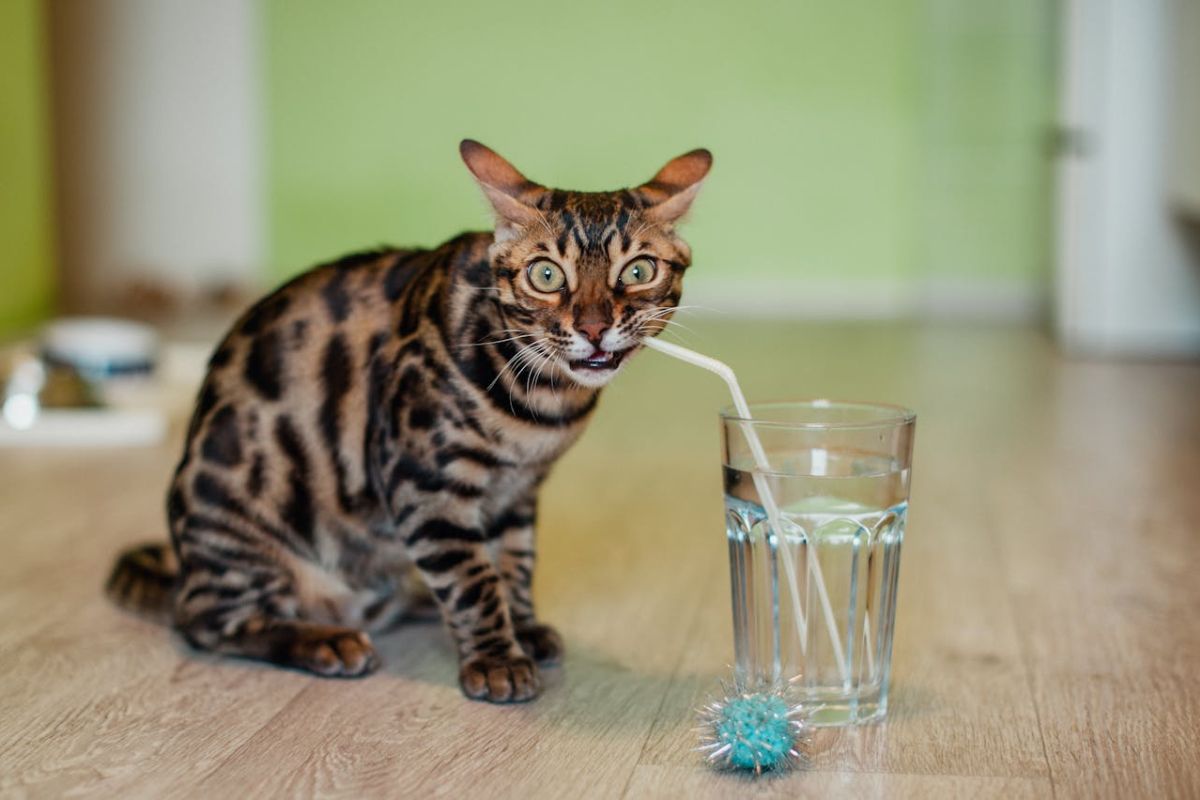While it’s tempting to think that cats might enjoy a variety of beverages as humans do, the reality is that their digestive systems are quite sensitive, and water actually remains the best drink for them. However, there might be other liquids that can be occasionally offered to cats as a treat or supplement. Let’s explore what kinds of drinks are safe for cats and which should be avoided.
The Necessity of Water for Cats
Cats, like all living organisms, require water to maintain their health. Water is involved in every aspect of feline physiology, from digestion and absorption of nutrients to temperature regulation and waste elimination. Ensuring that a cat is well-hydrated is crucial to prevent urinary tract diseases and kidney issues, which are common in felines.
Safe Alternatives and Treats
Even though water should be the staple, here are some safe liquids that can be offered to cats in moderation:
Cat Milk
Many cats are lactose intolerant, meaning that regular cow’s milk can lead to stomach upset and diarrhea. However, there are specially formulated “cat milks” available that are lactose-free and safe for cats to consume. These are often fortified with taurine, an essential amino acid for cats.
Bone Broth
Unseasoned bone broth can be a good supplement for cats, especially those that might be ill and have a reduced appetite, as it is rich in nutrients and can keep them hydrated. Ensure it’s free from onions, garlic, and excessive salt, which are harmful to cats.
Tuna Juice
The liquid from canned tuna can be given to cats in small amounts. It should be from tuna canned in water without any added salt.
Risky Liquids and Those to Avoid
It’s crucial to be aware of the liquids that are harmful to cats to avoid any health issues:
Cow’s Milk and Dairy Products
As mentioned earlier, most adult cats are lactose intolerant because they lack the enzyme necessary to digest lactose found in milk. Offering cow’s milk can lead to digestive distress.
Alcohol
Even small amounts of alcohol are toxic to cats and can lead to severe health issues and potentially be fatal.
Caffeine
Caffeinated beverages like coffee, tea, or soda can be toxic to cats. Caffeine can cause restlessness, rapid breathing, heart palpitations, and muscle tremors.
Chocolate Milk
Chocolate is toxic to cats, as it contains substances like theobromine and caffeine. Even without the chocolate, the milk itself is not recommended.
Sugary Drinks
Cats do not need sugar in their diet, and sugary drinks can lead to obesity and diabetes.
Citrus Juices
The acids and essential oils in citrus can cause stomach upset in cats and are typically unpalatable to them.
Grape Juice
Grapes and their derivatives are toxic to cats and can cause kidney damage.
What About Water Alternatives?
Tap, filtered, distilled, or bottled water is appropriate for cats as long as it is clean and fresh. Some cats might be picky about the taste or smell of certain types of water, so it might be a matter of finding out what your cat prefers.
Encouraging Hydration
Cats often don’t drink enough water, so here are some tips to encourage them to stay hydrated:
Running Water
Cats often prefer running water, as it mimics the moving streams they would drink from in the wild. Water fountains designed for cats can stimulate them to drink more frequently.
Multiple Water Bowls
Placing water bowls throughout the house encourages cats to drink more often. Make sure the bowls are clean and the water is fresh.
Wet Food
Feeding wet food can also increase a cat’s water intake, as it has a higher moisture content than dry food.
Conclusion
While there are some safe liquids that cats can occasionally enjoy, water remains the most crucial drink for their health and well-being. It’s vital to ensure that any treats given to a cat, including liquids, are safe and appropriate for their dietary needs. Always consult with a veterinarian before introducing new foods or drinks into a cat’s diet. Keeping water bowls filled with fresh, clean water and strategically placing them around the house is the best way to keep cats hydrated and healthy.

